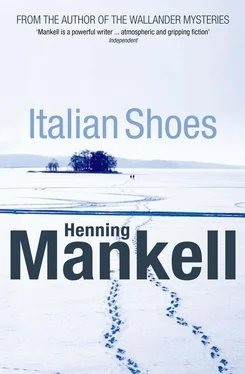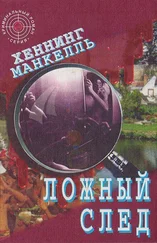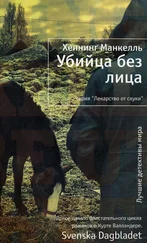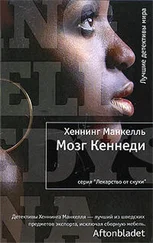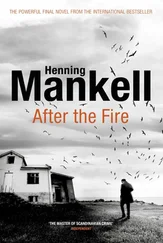‘How bad is it?’
‘I might live. But new rumours will spread around the islands. As if it weren’t enough that my daughter undresses in front of the men who rule the world, she comes back home and behaves like a violent madwoman towards her ageing father. You’re a boxer, you must know what can happen to a face.’
‘I didn’t mean it.’
‘Of course you did. I think what you really wanted to do was to kill me before I could write a will that disinherited you.’
‘I got upset.’
‘You don’t need to explain. But you’re wrong. All I want to do is to help Agnes and her girls. Neither she nor I can say how long the arrangement will last. That’s all. Nothing else. No promises, no gifts.’
‘I thought you were going to abandon me again.’
‘I’ve never abandoned you. I abandoned Harriet. I knew nothing about you. If I had done, everything might have been different.’
I emptied the towel and refilled it with new ice cubes. My eye was by now almost totally closed.
Things had started to calm down. We sat around the kitchen table. My face hurt. I stretched out my hand and placed it on her arm.
‘I’m not going to take anything away from you. This island is yours. If you don’t want her to come here with her girls while they are looking for another home, then of course I shall tell her that it’s not possible.’
‘I’m sorry you look like you do. But earlier this evening, that’s what I looked like inside.’
‘Let’s go to bed,’ I said. ‘We’ll go to bed, and tomorrow I’ll wake up with a perfect set of bruises.’
I stood up and went to my room. I heard Louise closing the front door behind her.
We had been on the edge of a storm. It had passed by very close to us, but hadn’t enveloped us completely.
Something is happening, I thought, almost cheerfully. Nothing earth-shattering, but still. We’re on our way to something new and unknown.
The December days were chilly and oppressive. On 12 December I noted down that it snowed for a while in the afternoon — nothing much, and it didn’t last long. The clouds were motionless in the sky.
My bruised face was painful and took a long time to heal. Jansson’s jaw dropped when I met him on the jetty the morning after the fight. Louise came to say hello. She was smiling. I tried to smile but failed. Jansson couldn’t resist asking what had happened.
‘A meteor,’ I said. ‘A falling star.’
Louise was still smiling. Jansson asked no more questions.
I wrote to Agnes and invited her to the island to meet my daughter. She replied after a few days and said it was too soon. Nor had she decided whether or not to accept my offer. She knew that she would have to make her mind up before long, but hadn’t done so yet. I could tell that she was still offended, and disappointed. Perhaps I felt relieved that she wasn’t going to come. I was still not convinced that Louise wouldn’t launch another attack on me.
Every day I walked round the island with the dog. I listened to my heart. I had got into the habit of taking my pulse and my blood pressure once a day. Every other day after resting, every other day without resting. My heart was beating calmly and steadily inside my ribcage. My steadfast companion on my journey through life, to whom I had not devoted many thoughts. I went round and round the island, tried not to lose my footing on the slippery rocks, and occasionally paused to contemplate the horizon. If I had to leave this island, what I would miss most would be the rocks, the cliffs and the horizon. This inland sea, which was slowly turning into a bog, didn’t always produce pleasant smells. It was an unwashed sea that sometimes smelled of a hangover. But the horizon was pure and clean, as were the rocks and the cliffs.
As I made my daily round of the island in my cut-down wellington boots, it was as if I were carrying my heart in my hand. Even if all my readings were good, I sometimes felt panicky. I’m dying, my heart will stop beating a few seconds from now. It’s all over, death will strike before I’m prepared for it.
I thought I ought to talk to Louise about my fears. But I said nothing.
The winter solstice was approaching. One day Louise sat down on a chair in the middle of my kitchen and asked me to hold a mirror. Then she used a pair of kitchen scissors to cut off her long hair, dyed what remained red, and laughed contentedly a couple of hours later when she examined the result. Her face became clearer. It was as if a flower bed had been cleared of weeds.
The following day it was my turn. I’d tried to resist, but she was adamant. I sat on a kitchen chair and she cut my hair. Her fingers seemed dainty round the unwieldy scissors. She said my hair was beginning to thin out on top, and also suggested that a moustache would suit me.
‘I love having you here,’ I said. ‘Somehow or other everything has become clearer. Before, when I looked at my face in a mirror, I was never quite sure what I saw. Now I know that it’s me, and not just any old face that happens to be going past.’
She didn’t answer. But I could feel a drop on my cheek. She was crying. I started crying too. She continued cutting my hair. We both wept silently, she behind the chair with the scissors, me with a towel round my neck. We never said a word about it afterwards, perhaps because we were embarrassed; or because it wasn’t necessary.
That is a trait I share with my daughter. We don’t speak unnecessarily. People who live on small islands are seldom loud or loquacious. The horizon is far too big for that.
One day Louise tied a red silk ribbon round Carra’s neck. Carra didn’t seem to think much of it, but didn’t try to remove it.
The evening before the winter solstice, I sat up late at the kitchen table and thumbed through my logbook. Then I made a note.
‘Calm sea, no wind, minus one degree. Carra is wearing a red ribbon. Louise and I are very close.’
I thought about Harriet. It was as if she were just behind me, reading what I wrote.
Louise and I decided we would celebrate the fact that the days were now going to start getting longer. Louise would do the cooking. In the afternoon I took my medication, then lay down on the kitchen sofa to rest.
It was half a year since we had all sat round in the brief darkness of the midsummer night. This evening, as we marked the winter solstice, Harriet would not be with us. I missed her in a way I had never done before. Even if she was dead, she seemed closer to me than ever.
I remained on the sofa for a long time before forcing myself up to have a shave and get changed. I put on a suit I had hardly ever worn. Despite being badly out of practice, I knotted a tie. The face I saw in the mirror terrified me. I had become old. I grimaced and went back down to the kitchen. It was starting to get dark in preparation for what would be the longest night of the year. The thermometer showed minus two. I took a blanket and sat down on the bench under the apple tree. The air was fresh, chilly, unusually salty. In the distance birds were crying, increasingly fewer of them, and less often.
I must have fallen asleep on the bench. When I woke up it was pitch dark. I was cold. Six o’clock — I had been asleep for nearly two hours. Louise was at the cooker when I came in. She smiled.
‘You were sleeping like an old lady,’ she said. ‘I didn’t want to disturb you.’
‘I am an old lady,’ I said. ‘My grandmother used to sit on that bench. She was always freezing cold except when she dreamt of gently soughing birch trees. I think I might be changing into her.’
It was warm in the kitchen. The hob and the oven were on; the windows had misted over.
Strange and wondrous perfumes began to fill the kitchen. Louise held out a spoon with a taster from a steaming casserole.
Читать дальше
